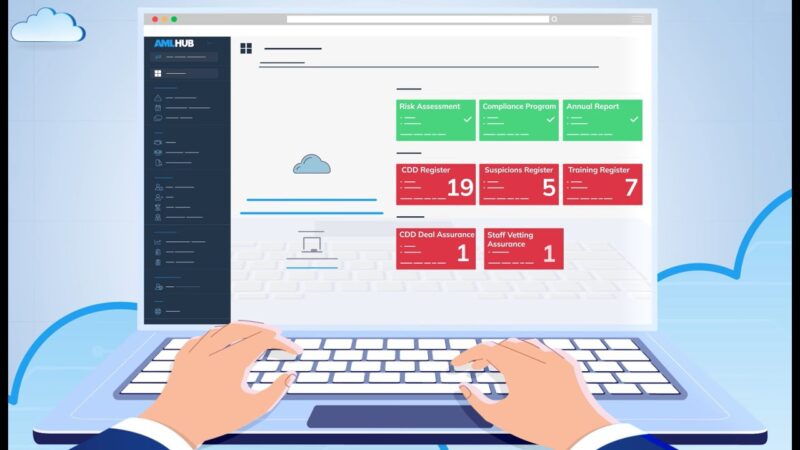LiftMyScore: Smart Credit Building Strategies to Boost Your Financial Profile

In today’s financial landscape, your credit score plays a pivotal role in securing loans, obtaining favorable interest rates, and even renting an apartment. A high credit score is a testament to your financial responsibility, and it opens doors to better financial opportunities. If your credit score isn’t where you’d like it to be, don’t despair. LiftMyScore is here to guide you through smart credit building strategies that can elevate your creditworthiness and pave the way for a brighter financial future.
Understanding Your Credit Score
Before delving into credit-building strategies, it’s essential to grasp the fundamentals of credit scores. Your credit score, typically calculated using the FICO or VantageScore model, is a numerical representation of your creditworthiness. It ranges from 300 to 850, with higher scores indicating lower credit risk. Several factors influence your credit score, including:
Payment History: Timely payments on credit accounts, such as credit cards and loans, positively impact your score.
Credit Utilization: This refers to the percentage of your available credit that you’re using. Aim to keep this below 30% to maintain a healthy score.
Length of Credit History: The longer your credit history, the better. It demonstrates your ability to manage credit over time.
Types of Credit: Having a mix of credit accounts, such as credit cards, installment loans, and mortgages, can positively affect your score.
New Credit Inquiries: Opening multiple new credit accounts in a short period can lower your score temporarily.
Now, let’s explore some smart credit building strategies that can help you boost your credit score.
Smart Credit Building Strategies
Monitor Your Credit Report Regularly
Subheading: Knowledge is Power
Start by obtaining free annual credit reports from the three major credit bureaus: Equifax, Experian, and TransUnion. Review these reports for inaccuracies, errors, or fraudulent activity. Dispute any discrepancies promptly. You can also use credit monitoring services to receive real-time updates and alerts about changes to your credit report.
Pay Bills on Time, Every Time
Subheading: The Power of Consistency
Your payment history has a significant impact on your credit score. Set up payment reminders or automate payments to ensure you never miss a due date. Consistently paying bills on time will demonstrate responsible financial behavior to creditors.
Reduce Credit Card Balances
Subheading: Tackle High Credit Card Debt
High credit card balances relative to your credit limit can negatively affect your credit score. Focus on paying down credit card debt, starting with the cards that have the highest interest rates. Aim to keep your credit utilization below 30% to see a positive impact on your score. We have put together an overview of the 3 best Email Marketing Services Lookinglion to boost your marketing campaigns.
Diversify Your Credit Mix
Subheading: Building a Well-Rounded Credit Profile
If you only have credit cards, consider diversifying your credit mix by adding installment loans or a mortgage to your credit portfolio. A diverse credit profile can demonstrate your ability to manage various types of debt responsibly.
Become an Authorized User
Subheading: Piggybacking on Good Credit
If you have a trusted friend or family member with a strong credit history, ask if you can become an authorized user on one of their credit cards. Their positive payment history may be reported on your credit report, potentially boosting your score.
Use Secured Credit Cards
Subheading: Rebuilding with Security
Secured credit cards require a cash deposit as collateral. They are an excellent option for those with limited or damaged credit histories. Make regular, on-time payments to gradually build or rebuild your credit.
Avoid Excessive Credit Inquiries
Subheading: Mindful Credit Shopping
When shopping for new credit, such as a car loan or mortgage, be mindful of the number of inquiries made on your credit report. Multiple inquiries within a short time can lower your score. Try to consolidate loan shopping within a specific timeframe.
Negotiate with Creditors
Subheading: Communication is Key
If you’re struggling to make payments, contact your creditors to discuss hardship options or negotiate for better terms. Avoiding late payments and defaulting can help preserve your credit score.
Practice Patience
Subheading: The Long Game
Building or rebuilding credit takes time. Be patient and stay committed to your credit-building strategies. Over time, your responsible financial habits will be reflected in an improved credit score.
Seek Professional Help if Needed
Subheading: When All Else Fails
If you’re overwhelmed by credit issues or struggling to make progress, consider consulting with a reputable credit counseling agency or a financial advisor. They can provide personalized guidance and help you develop a tailored credit improvement plan.
Conclusion
Your credit score is a valuable financial asset that can shape your financial future. Implementing these smart credit building strategies from LiftMyScore can help you raise your credit score, opening up doors to better financial opportunities, lower interest rates, and improved overall financial stability. Remember that building credit is a gradual process, and consistency is key. By following these strategies and staying committed, you can steadily enhance your creditworthiness and secure a brighter financial future.




